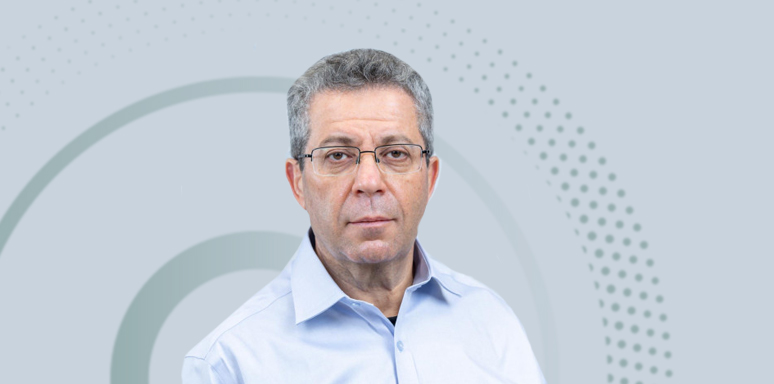Gene Sequencing, Fast and Precise

Dr. Leonid Yavits recently won a generous grant awarded by the EU, for a four-year project in which he will be developing algorithms and methods of in-memory computing, to be used in Biocomputing applications
For Dr. Leonid Yavits, 2022 ended with some great news: his research group won the prestigious EU’s Horizon Europe BioPIM project’s research grant. “Horizon Europe is a seven-year program for which the EU has allocated approximately 93 billion Euros,” he explains. “Our group is made up of seven collaborators from Israel, Turkey, France, and Switzerland, and our goal is to develop hardware accelerators using in-memory computing, to support applications of Biocomputing.”
Dr. Yavits, married and a father of two, has spent most of his professional career in the industry. He completed his master’s in electrical engineering at the Technion and worked as a hi-tech entrepreneur. In 2012 he returned to academia and completed his doctoral studies. “I specialize in computer architecture and integrated circuits, applications related to computational learning, and computational genomics. That’s why I was so happy to learn that the Faculty of Engineering has an entire group of people whose focus is biology.” In April 2022 he joined the Faculty of Engineering, at Prof. Eddie Teman’s Hardware and Chip Design program. “Israel has been regarded as a chip superpower since the 1990s,” he explains. “In the past few years, the field has taken a leap forward, and you’d be hard-pressed to find tech companies without a chip development facility in Israel—this includes Apple, Microsoft, Google, and Facebook. Our program is right at the cross-section of electrical engineering and computer engineering, and its mission is to bring more chip engineers into the industry. Last year we started out with five or six students; this year we already have 15 more, and we’re hoping to make it to 100 after four years.”
Dr. Yavits is conducting his research at Prof. Alexander Fisch’s EnIX lab, which is home to six faculty members and dozens of students. “We cover every research topic related to computer engineering, nano, and chip, and work in a variety of fields,” says Dr. Yavits. “I work in computer architecture and focus on hardware acceleration, which is one of the most bustling fields in hardware engineering in the last few years. We’ve come to a point of satiation in performance. Things are moving forward, but at a modest speed; we no longer have the technological capabilities to double performance each year, like we did, say, 20 years ago. That’s why industry and research are putting their efforts into hardware acceleration: designated computers and processors built for specific purposes. One direction this is going is new computer structures, for example, in-memory computing: instead of having the computer work in a classic manner, with data moving from the memory to the processor and back to the memory, computing will take place inside the memory itself.”
When it comes to hardware acceleration, Dr. Yavits specializes in computational biology, a field in which biological problems are solved using computational methods. “Computational biology can manifest in different fields, one of which is genomic analysis: sequencing a biological sample (the process of converting it to a digital format) and performing a digital analysis. Take Covid, for example, antigen or PCR tests can tell us if the person is sick or not, but they can’t tell us which variant they have; we can only determine if we sequence the viral DNA and digitally analyze it. Such sequencing can help us understand how the virus changes and how it moves from place to place,” explains Dr. Yavits. “Computational biology is also used in personalized medicine. Genomic analysis can help us diagnose whether a person has a specific type of cancer, for example. This is primarily crucial for rapidly developing diseases, where the diagnosis is a critical aspect of choosing the course of treatment. Another example is infections contracted in hospitals. In the U.S., for example, some 50% of hospital deaths occur as a result of infections, mostly in the blood. In these cases, precision is key: we need to know which pathogen is causing the infection and the rate at which it is doing that; if we don’t act quickly—within a few hours at most—we might lose the patient.”
This specific specialization of developing algorithms and methods of in-memory computing for applications of computational biology is what Dr. Yavits brings to the Horizon Europe project. “In terms of hardware development, it’s about developing new computing methods that will hopefully serve the entire computer industry,” he says. He is looking for partners on his journey: “we’re seeking students who are interested in leading research in the combined fields of hardware and algorithms, and computational learning and biology, either on their way to or in the process of obtaining an advanced degree. We want people who are curious and independent, and if they have a background in biology algorithms, that’s even better.”
Sounds interesting? Find out more and apply with Dr. Yavits: leonid.yavits@biu.ac.il
Last Updated Date : 26/01/2023



